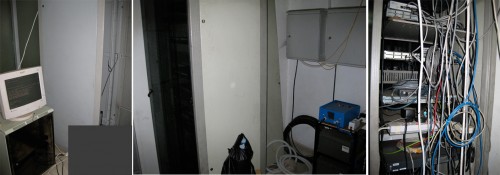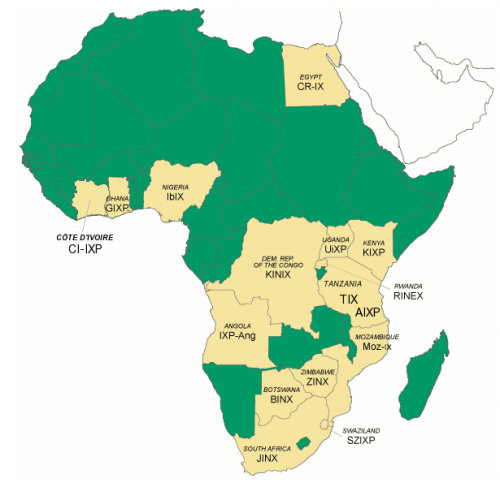I’ve spent the last couple days talking to web designers, programmers, systems administrators and businessmen about the situation in Uganda.
Technologists in Uganda have quite a job on their hands. Sitting, land-locked, behind Kenya and Tanzania they share most of those two countries problems, find that everything is more expensive, and then have to deal with a government who has little to know understanding of how technology can spur economic growth. On top of that, the local ISPs and the mobile operators are happily providing sub-par services at larcenous rates.
It’s no surprise then that we see a lot fewer quality programmers and web designers in Kampala than in Nairobi. However, though there are fewer, there is a great depth of talent available here in those that are doing this work, whether it’s Solomon King‘s Node Six, Jon Gosier‘s Appfrica Labs or Software Factory the creators of Kiva’s rival MYC4.
Local web hosting and the IXP
From what I could tell, there is only one hosting company setup for anyone to get started with a website in Uganda that runs a server from within the country. Few government websites are hosted locally, and the same remains true for almost all business or personal sites. Though there is excellent bandwidth locally, the international bandwidth is what is used, which means that no one (local) is winning.
What is surprising is that there is no local caching of international content going on at the Uganda IXP. If the Google Global Cache was being used, that alone would speed up local performance and make a better user experience. There are rumors of a Google Cache being used at either the ISP-level or Makerere, but that since it’s not using the UIXP, it cannot provide the service to all of the ISPs.
However, more important than that is the fact that it would significantly decrease the amount of international traffic. What’s mind boggling is that the local providers would still be able to charge the same rates, but decreasing international traffic through caching would increase their profit margins. I’m not quite sure why this isn’t being done, I wonder if the ISPs and mobile operators are just making too much money as it is and this is seen as more work than it’s worth.
Uganda’s IXP (international exchange point) is something of a mess too. Apparently, the two founders are in a bit of a squabble, with means each neutralizes the others decisions and nothing gets done. To make matters worse, the environment where it resides can only be considered as hostile to any type of electrical equipment. It’s in the basement of a parking garage where people wash cars providing a healthy dose of moisture, dust is in the air, and there is a general lack of upkeep on it.
Basically, all of the money ($106m) that the Ugandan government and the local ISPs and mobile operators are pouring into the infrastructure is reliant upon this one poor excuse for an IXP. It works, and the packets are switching, it’s just that the operation is not working in the optimal environment – physically or organizationally.
This is troubling for a number of reasons, but perhaps the biggest reason why it sits so poorly with me is that the government has a stated aim of getting more “local content” online. So, while there might be 10 Wimax providers going live by the end of the year in Kampala, there is little foundational infrastructure to support the peering between providers locally, regionally or internationally.
It seems that the biggest problems within the Uganda internet space is more about lack of holistic focus by the government and local ISPs and mobile operators. With a little effort, the peering, content hosting, costs and speed could be improved.

